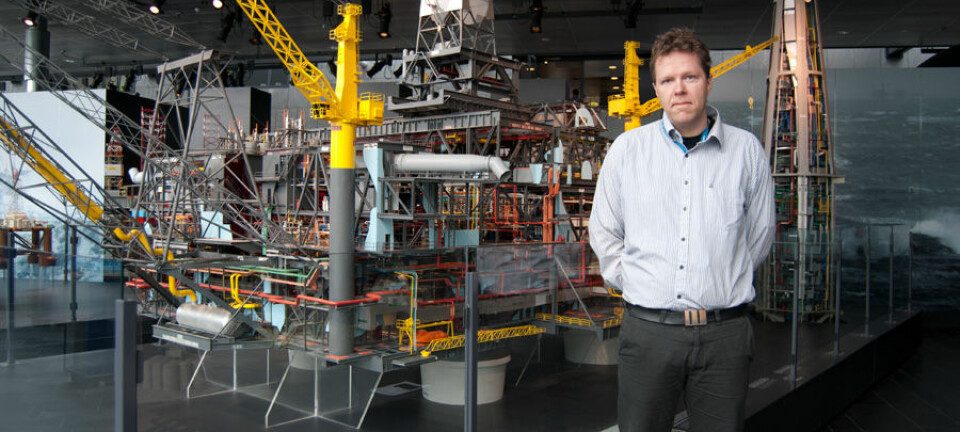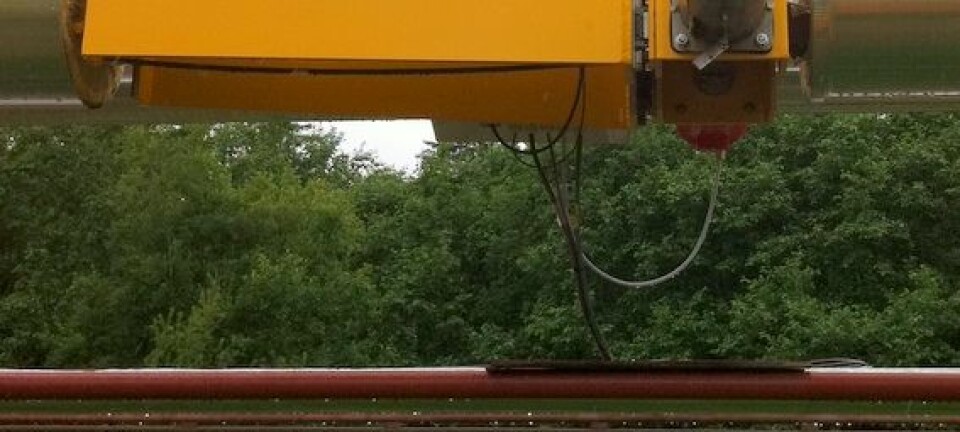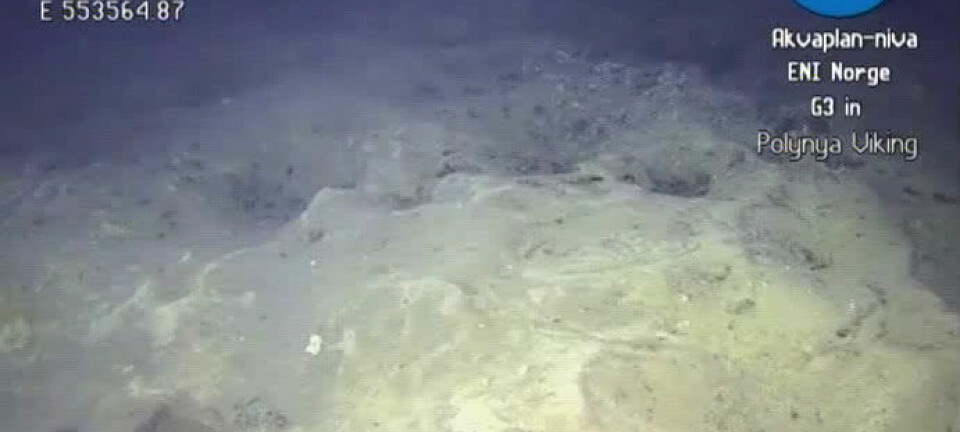An article from Norwegian SciTech News at SINTEF
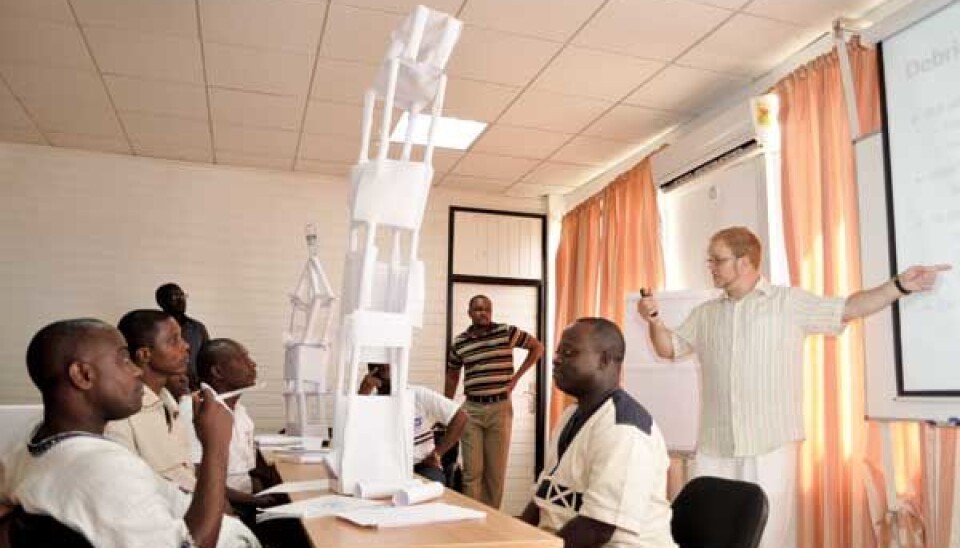
Ghana puts its hope in oil
Norway is helping Africa’s youngest oil nation with a prescription for prosperity. But the learning goes both ways.
Denne artikkelen er over ti år gammel og kan inneholde utdatert informasjon.
Africa’s newest oil nation, Ghana, has one thing in common with the youthful petroleum nation of Norway in the 1970s.
The Ghanaians also want to develop a domestic supply industry to the oil sector. They want to copy the model which keeps the lights on in Norway today.
“There’s no doubt that the Ghanaians profoundly hope there will be jobs in the oil industry”, says SINTEF researcher Håkon Hynne. And that is just what he is there to help them with.
After legislation
Ghana is preparing a so-called “Local Content Act” with the help of the Norwegian Petroleum Directorate. The new law aims to guarantee that local businesses will get to deliver a certain proportion of the goods and services needed by the oil sector – even though they might be a little more expensive.
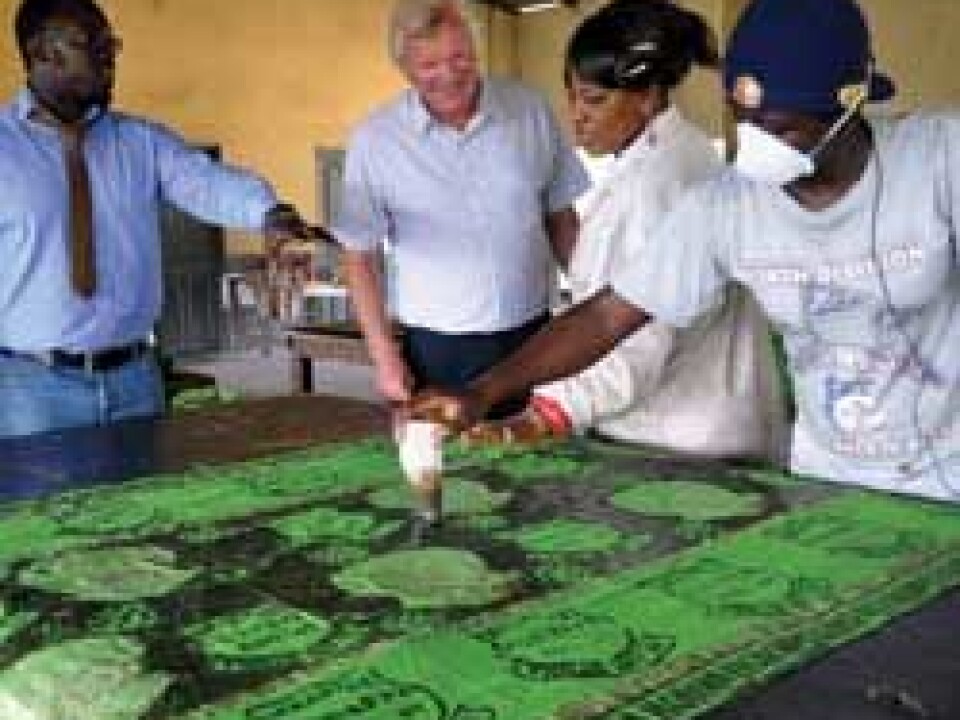
“But all the legislation in the world won’t help these companies if they can’t demonstrate that they’re good enough”, says Hynne.
Four years ago, SINTEF launched a NORAD-funded multidisciplinary project in Ghana, with Hynne as Project Manager. The aim is to strengthen Ghana’s ability to produce supplier companies equipped to meet the demanding quality requirements of the oil sector.
Ten local businesses are taking part. Most of them have secured clients from within the sector during the project period.
“The companies pointed out that they lacked capital and some of the necessary skills and expertise”, says Hynne. “They also saw it as a problem that they are small businesses working in a fragmented industry. So we have tried to address all these issues”, he says.
Always looking for spin-off benefits
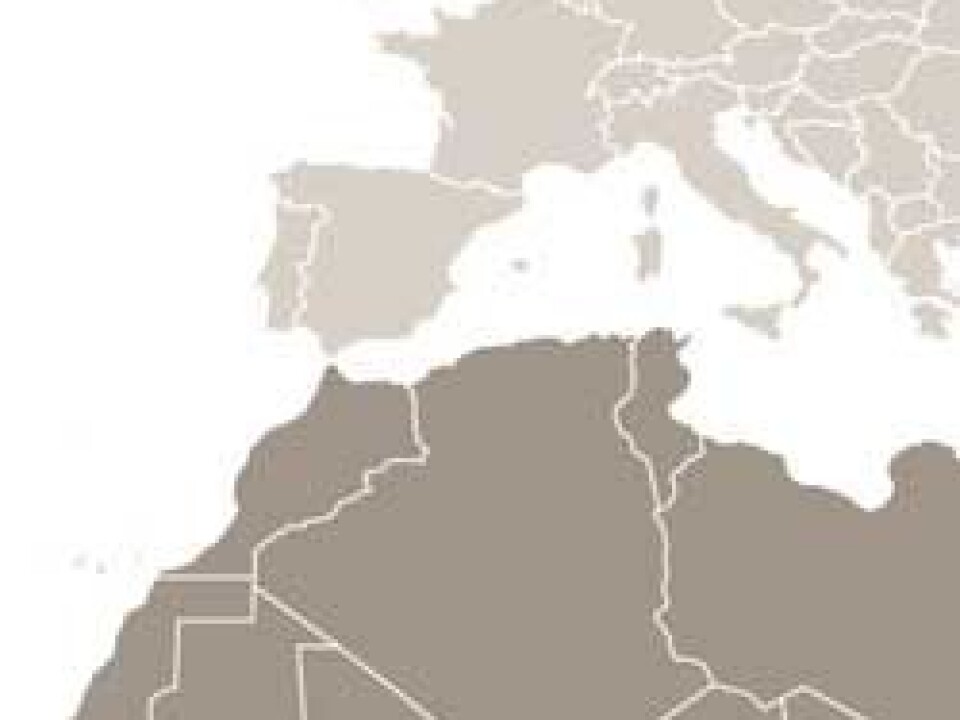
Hynne is an economist. He has previously lived in Uganda and Zambia, and now he is on his seventh visit to Accra just this year.
He and his SINTEF team had been working in Botswana in southern Africa on NORAD-funded business development projects for many years. Together with Botswanan researchers they developed a so-called “tool box” for use in this type of work, which they have since refined with help from Norwegian industry.
In Ghana they have carried it even further.
The main idea involves an approach which provides businesses with development opportunities by showing them how financial and production management, combined with organisational development, function together.
The package also includes analytical tools used by the participants to select business partners as a basis for building industrial clusters. At the same time, local company employees in Accra are being trained in project management at master’s level under the auspices of NTNU.
“If our approaches work in Ghana, they will work in Norway too – albeit with a few adjustments”, says Hynne.
Representatives from participating companies and the GNCP are generous in their praise of what the researchers have given them. Hynne hopes that the World Bank will be sufficiently persuaded by the project design to scale it up. If that happens, investment will begin to flow into projects such as the construction of industrial parks.
Hynne explains that Norway’s own oil discoveries had a the favourable timing.
“We had yards in Norway with empty order books and therefore no problems in rapidly changing their practices in order to welcome the offshore oil and gas boom”, he says.
“And Ghana too has advantages when it comes to local wealth generation – at any rate when you compare it with many other African countries”, he continues. “The most important thing is that democracy seems to be working, even though it is young and fragile.”
Jobs and tax revenues
“In the past, aid work was synonymous with health services, schools and food”, says Hynne. “That’s all well and good, but it’s important that we are now incorporating business development as well. Wealth generation and tax revenues are needed to finance the schools and health services, which in turn represent the foundations for future growth”, he says.
Ghana has many highly qualified emigrants.
“One of Ghana’s challenges is to tempt its emigrants back”, says Hynne.
Jordan Mathia is one of Ghana’s prodigal sons. As a young man he emigrated to Norway in 1979 and qualified in seismic technology which exploits acoustic waves in oil exploration. He returned home when oil was discovered in Ghana. Together with one of his countrymen, Mathia established a local oil industry-focused service company which now has 16 employees. His business, J&R, was one of the first to be selected to take part in the NORAD/SINTEF project.
Mathia hopes that those responsible for Norwegian aid will have the patience to stay for the long haul in Ghana.
Ghana wants a Norwegian presence
“It would be senseless for Norway to back out now”, he says.
The entrepreneur regards Ghana as sadly lacking when it comes to infrastructure and financial support for businesses. He believes this makes the aid project even more essential.
“The project should have a 15-year lifetime and involve many more businesses”, he says.
J&R shares their office building with the Norwegian company Siem Offshore, which owns and operates supply vessels across the globe. As the vessel owner’s partner in Ghana, J&R organizes crew changes and obtains spare parts.
“Know-how from the SINTEF project has been of real help to us”, he says. “Among the things we have learned are how to organize a business, carry out NPV analyses and build networks” says Mathia.
“Would an extension of the project really make any difference?”
“Absolutely”, Mathia insists. “At the very least it would boost awareness about the importance of a locally-sourced supply sector for the development of our country”, he says.
Gold and cocoa
Oil is far from being Ghana’s only natural resource. Gold deposits enticed Portuguese traders here as early as the 15th century, and gave the region its name – the Gold Coast. Mining for gold has continued ever since, checked for a while only by the slave trade operated by cynical Europeans who found trading in people more lucrative.
The British colonized Ghana in 1874. In 1957, Ghana was the first of the African colonies to gain its independence, and the country’s first president, Kwame Nkrumah, became an icon for the entire continent. In the industrial city of Tema you find a gigantic “monument” to the Ghanaian national hero – an enormous, and somewhat forsaken, concrete silo built as an interim storage facility for cocoa, until now the country’s most important export. Under Nkrumah, Ghana used the silo to keep back cocoa when the price was low.
“The US didn’t approve of this price manipulation tactic, and this spelled the beginning of the end for Nkrumah”, says Emmanuel Asiedu. From a neighbouring site, Asiedu heads GRATIS, a non-profit organization established by the Ghanaian government to carry out technology transfer to rural areas. With the help of NORAD and SINTEF, the organization is now looking for opportunities in the oil sector.
Dutch sickness?
GRATIS is active in all regions of the country and is engaged in the designing, prototyping and manufacturing of mechanical equipment, as well as training of employees and students. The company produces complete processing plants for agricultural products. The government of Ghana has mandated GRATIS to spearhead the development of petroleum-related technology as well.
Asiedu says that Norwegian aid has been very useful in assisting with the restructuring. It has helped the company to focus and improve on its weak points. According to Asiedu, the project has also resulted in subcontracting jobs for suppliers who have managed to get a foothold in the oil industry.
Together with Hynne, researchers Sigrid Damman and Morten Hatling constitute the current Ghana team from SINTEF’s Applied Economics department. She is a social anthropologist, and he a sociologist. These three feel that Norway too has learned a lot of useful things from this aid project.
Culture and tailored tools
“The Ghanaians are preoccupied with achieving shared understanding by means of consensus, whereas in the north and west we stick to majority decisions. Knowing that consensus is often the best solution is a useful idea to have in mind when we are looking onto Norwegian projects”, says Hynne.
“Many highly-developed economies have had the opportunity to leapfrog technological stages which the West has had to pass through. Telecommunications is a good example. The stages making up the development and spread of a technology are not the same here as at home. This know-how is something which SINTEF can apply in its activities in Norway”, says Hatling.
“We prepare the ground to enable us to adapt to local cultures, and then tailor our tools to each individual project. We do this together with local partners who will carry on the work afterwards. In Ghana we work together with the CSIR-STEPRI institute. Together we have expanded the project model we are using here in Ghana. This has involved looking at how the framework conditions for business development can be strengthened, says Damman.







